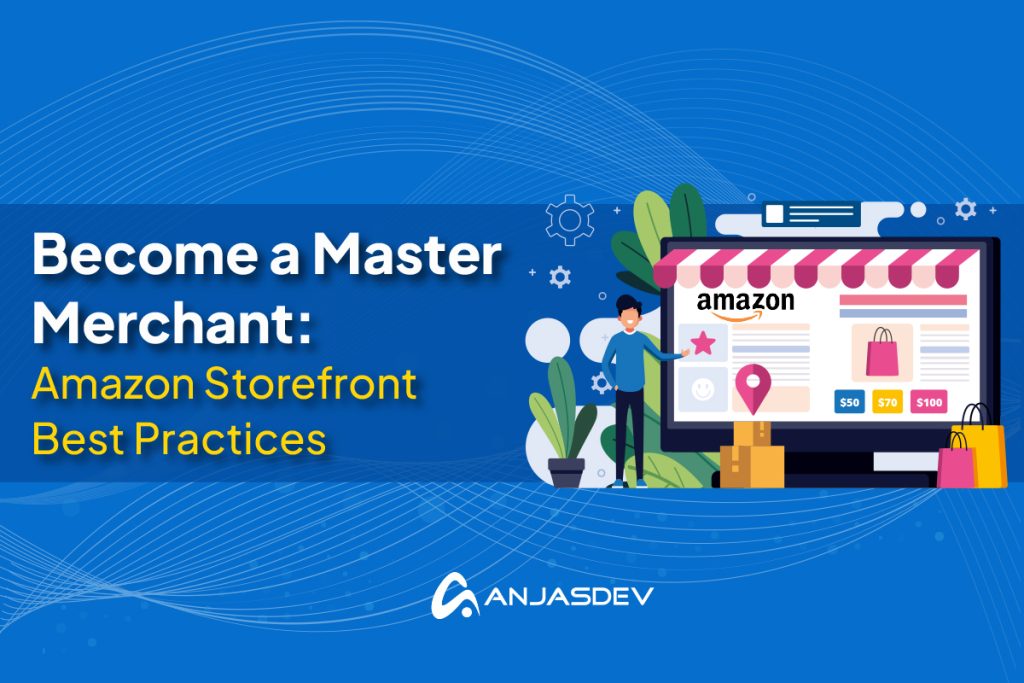SEO is a game-changer in the ecommerce industry. Mastering the art of SEO can catapult your online business to new heights, boosting your website’s traffic and visibility on search engines. The real power of SEO lies in its ability to drive conversions and sales, making it a crucial strategy for any e-commerce business.
With over 4.4 million virtual storefronts powered by Shopify alone, it’s crucial to learn how to stand out. We’ve compiled a list of practical list that you can implement to leverage ecommerce SEO strategy and boost your business. These strategies are designed to be accessible and effective, empowering you to take control of your online visibility and sales.
Understanding Ecommerce SEO
What is e-commerce SEO?
Ecommerce SEO is the practice of optimizing an online store or e-commerce website to rank higher in search engine results for relevant keywords and phrases. It involves various strategies and techniques aimed at increasing the visibility and organic traffic, as well as targeting leads through the various buying stages.
Key elements of ecommerce SEO include:
- Keyword research: Identifying relevant keywords and phrases that customers use to search for products or services.
- On-page optimization: Optimizing individual product pages, category pages, and other essential pages with relevant keywords, meta tags, headings, and high-quality content.
- Technical SEO: Ensuring that the website is technically sound, with a user-friendly site structure, clean URLs, and fast loading times.
- Content marketing: Involves creating high-quality, informative, and engaging content such as product guides, blog posts, and videos.
- User experience: Optimizing the website’s navigation, design, and overall user experience to encourage engagement and increase conversions.
What are the challenges of ecommerce SEO?
As important as knowing the cornerstones of ecommerce SEO is understanding some of the challenges and pitfalls so you know how to avoid them. They include:
- Large product catalogs: Ecommerce websites often have thousands or even millions of product pages, making it challenging to optimize each page individually. This can lead to issues with duplicate content and keyword cannibalization.
- Duplicate content: Many ecommerce sites generate multiple URLs for the same product, leading to duplicate content issues. This can confuse search engines and dilute ranking signals, potentially impacting search visibility.
- Thin content: Product descriptions on ecommerce sites are sometimes brief or need more unique, valuable content, making it harder for search engines to understand the relevance and value of those pages.
- Site architecture and internal linking: With large product catalogs, maintaining a logical and crawlable site architecture and internal linking structure can be challenging.
- Product variants: Many ecommerce sites offer multiple variations of the same product (e.g., size, color, material), which can create duplicate content issues.
- Competition: Ecommerce is a highly competitive landscape, with numerous businesses vying for the same keywords and search engine real estate, making it challenging to stand out and rank well.
Keyword Research and Targeting
Keyword research is the backbone of any successful ecommerce SEO strategy. It involves identifying the terms and phrases that potential customers use when searching for your products or services. By understanding these keywords, you can ensure that your business reaches the right audience, making it a crucial part of your ecommerce SEO checklist.
Strategies for identifying relevant keywords for ecommerce sites include:
- Analyzing product names and categories: Start by compiling a list of keywords directly related to the products or services offered.
- Exploring long-tail keywords: Examine longer, more specific keyword phrases that potential customers might use when searching for specific items or details. This often leads to higher lead quality and conversion rates as the customer already knows exactly what they want. For example, instead of a “jewelry box,” a long-tail keyword signifying customer intent might be a “mirrored jewelry box with ring holder.”
- Utilizing keyword research tools: Tools like Google Keyword Planner, Ahrefs, or SEMrush can provide valuable data on search volumes, competition levels, and related keywords.
- Mining customer data: Analyze customer queries, product reviews, and support conversations to uncover common language and phrases that can be used to craft new keywords.
When you’ve figured out the right keywords for your business, it’s time to implement them. Places where keywords should be used include:
- Product pages: Optimize product titles, descriptions, and metadata with target keywords to improve relevance and visibility.
- Category pages: Ensure category pages target broader, more general keywords related to the product types or categories.
- Site content: Create blog posts, guides, and other content pieces that target long-tail and informational keywords, providing value to customers and supporting your SEO efforts.
On-Page Optimization
Optimizing product titles and descriptions is one thing you need to get right as part of your on-page optimization strategy. Your page titles should be short but descriptive, with naturally inserted keywords for relevance rather than a clumsy list of them at the end of the product description.
In addition, your product descriptions should provide detailed information, including key features, specifications, and benefits, while naturally integrating target keywords. Think about what the customer will want to know and what they are looking for. If you aren’t covering this, your SEO for product pages might need a shape-up.
Using relevant keywords in headings (H1, H2, etc.), meta tags (title and description), and alt text for images can significantly improve a page’s relevance and visibility to search engines. These elements should be crafted carefully, striking a balance between keyword optimization and providing a positive user experience. At the end of the day, you are trying to sell to humans, not to bots.
Crafting compelling and informative product content can differentiate your ecommerce site from competitors. Beyond basic descriptions and product listings, consider creating in-depth guides, comparisons, or tutorials that address common customer questions and pain points. This valuable content can capture long-tail keyword traffic and establish the site as a trusted authority, creating valuable backlink opportunities.
Internal linking and site structure optimization ensure that search engines can effectively crawl and understand your website’s content and architecture. A logical site structure, with clear navigation and breadcrumb trails, can enhance the user experience while providing valuable data on how users browse your site and what they focus on most.
Technical SEO for Ecommerce
Technical SEO by name sounds scary and complicated, but in fact, it contains processes that you already know how to do or may do regularly as part of the upkeep of your site. Here are some of the ways that technical SEO is utilized for ecommerce.
Site speed and performance are critical factors in ecommerce SEO strategies, as they directly impact user experience and search engine rankings. Slow-loading pages can lead to higher bounce rates and lower conversion rates while also negatively affecting search visibility.
Optimizing images and media files by compressing file sizes and utilizing appropriate formats can significantly reduce page load times. Additionally, enabling browser caching and leveraging content delivery networks (CDNs) can further improve performance.
Ensuring mobile-friendliness and responsiveness is essential, as an increasing number of online shoppers use their phones. Research has suggested that around 56% of all online product sales were completed through a mobile device in 2023.
Still worried about technical SEO for your ecommerce business? The team at AnjasDev is here to help. Experienced technical SEO specialists, we can also assist with both Magento SEO optimization and BigCommerce SEO. Get in touch to find out how we can help your business’s smooth online operation.
SEO for Small Ecommerce Businesses
Smaller ecommerce businesses may need to take a different approach to their SEO strategy. As they often have a much smaller marketing budget and fewer resources than large companies, the focus is on making smart ecommerce SEO strategy decisions that make their investment stretch as far as possible.
Small businesses should really tap into their local market. By focusing on embedding local SEO to target the nearby area, they can reach out to more qualified leads and gain more brand reputation on a smaller but just as vital scale.
Alongside area-specific keywords, social media advertising and engagement truly are a small business’s best friends when it comes to ecommerce SEO strategy. This includes making good use of product reviews and client testimonials, as well as key user-generated content (UGC) that builds trust with potential customers.
Measuring and Analyzing Success
Regularly tracking and analyzing SEO performance is essential for ecommerce businesses to measure the effectiveness of their efforts and make data-driven decisions. Without it, businesses run the risk of ineffectively using their SEO budget rather than being able to allocate it effectively for maximum ROI. Key metrics to monitor include organic traffic, keyword rankings, conversions, and revenue attributed to organic search.
Analytics tools and dashboards like Google Analytics and Search Console provide valuable insights into keyword effectiveness and user behavior. By continuously monitoring and optimizing based on the data, businesses can adapt their strategies, identify areas for improvement, and maximize the return on their SEO investments over time.
All in all, it goes without saying that ecommerce SEO is essential to your online business. Make sure to constantly be on the pulse when it comes to both new SEO trends and existing data to make sure that your business shines out in the virtual marketplace.
If you feel like you need an extra hand with your ecommerce SEO efforts and management, AnjasDev is here to help. With expertise in SEO for Shopify sites and ecommerce website optimization, we’ll help your SEO budget go further with data-driven insights and a personalized approach with you and your customers in mind. Reach out today for a free consultation.



